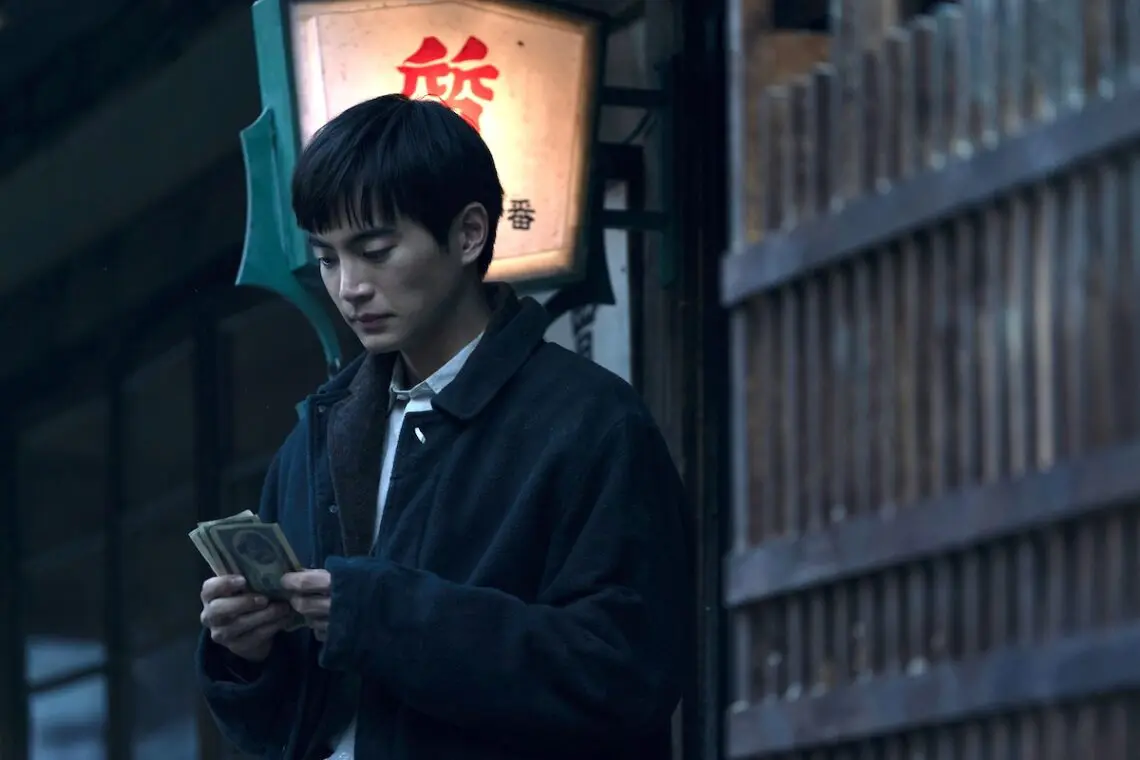Pachinko’s dramatic season 2 finale: twists and revelations
SPOILER ALERT: The following article contains spoilers from the Season 2 finale of “Pachinko,” now streaming on Apple TV+.
The Apple TV+ drama Pachinko has once again left audiences on the edge of their seats with a gripping and emotional season finale. This season, the narrative focused on Noa’s compelling journey, while also exploring the complex relationships within his family.
A deep dive into Noa’s story
The second season of Pachinko predominantly centers around Noa (Tae Ju Kang), a young man in 1951 navigating the perils of college life, first love, and a shocking personal revelation. The moment we’ve all been anticipating finally arrives – the discovery of his biological father, Koh Hansu (Lee Min-ho), a wealthy yet corrupt businessman. This revelation sets off a chain of emotional and narrative fireworks, dramatically altering Noa’s perception of his past and future.
The impact of parentage
Koh Hansu’s revelation to Noa about their relationship isn’t just a plot twist; it delves into the thematic core of identity and heritage. Hansu, a character as complex as he is controversial, brings layers of ambiguity to the narrative. His decision to disclose the truth to Noa – after a prolonged internal struggle – underscores his own torment and desire for acknowledgment.
“In the scene where Hansu is confronted by Noa, Hansu decides to reveal everything despite knowing the pain it would cause,” writes the showrunner. This moment is not just a pivotal turning point for Noa, but also reflects on Hansu’s own vulnerabilities.
Sunja’s heartbreaking journey in 1989
Parallel to Noa’s story is the equally compelling 1989 timeline, where an elder Sunja (Youn Yuh-jung) grapples with personal loss and family struggles. Her budding romantic relationship comes to an abrupt end, while her son Mozasu (Soji Arai) faces specters from his past. Mozasu’s efforts to prevent his son, Solomon (Jin Ha), from pursuing a perilous path mirror his own early life choices and fears.
Mozasu, Solomon, and the generational clash
In a poignant subplot, we see Mozasu trying to intervene indirectly in Solomon’s life decisions by confronting his son’s employer. This dynamic offers a heartfelt exploration of father-son relationships within the context of immigrant experiences. The painful yet loving attempts to steer children clear of past mistakes is a universal theme, made even more resonant through the show’s cultural lens.
The mingling of timelines: Past, present, and future
Throughout the season, Pachinko melds its timelines seamlessly, juxtaposing the personal evolution of its characters against the broader historical backdrop. Showrunner Soo Hugh remarks on the synchronization of the timeline with the original novel and the show’s intentions for blending the book’s past with new present-day storytelling.
Visual storytelling and cinematic techniques
The episode’s cinematography significantly contributes to its emotional depth. Lingering shots and careful composition underscore the narrative beats, particularly during Noa’s intense confrontation with his father. The visual storytelling here is reminiscent of classic cinema, where each frame is loaded with subtext and emotion.
Musical highlights: Blackpink’s Rosé covering Coldplay
In a delightful surprise for fans, the episode features Blackpink’s Rosé lending her voice to a cover of Coldplay’s iconic song “Viva La Vida.” This cover not only fits thematically with Noa’s journey but also adds a poignant auditory layer to the finale. The decision to enlist Rosé for this cover underscores the show’s commitment to blending contemporary and historical elements, creating a unique viewing experience.
What lies ahead for Pachinko?
While the second season ties up several narrative threads, it leaves us yearning for more. The emotional and plot-driven revelations set the stage for further explorations should a third season be greenlit. With so many stories left to tell and unfinished character arcs, fans and critics alike are hopeful for the continuation of this epic saga.
As the show gains momentum and continues to break new ground in storytelling, it highlights the resilience and complexity of immigrant experiences through a richly woven tapestry of characters and timelines. With applause from all corners, Pachinko proves it is not only a story worth telling but one that deeply resonates with a global audience.
Stay tuned for more updates and follow us for the latest news on your favorite shows and movies. Share your thoughts on social media and join the conversation!

 Italian
Italian







